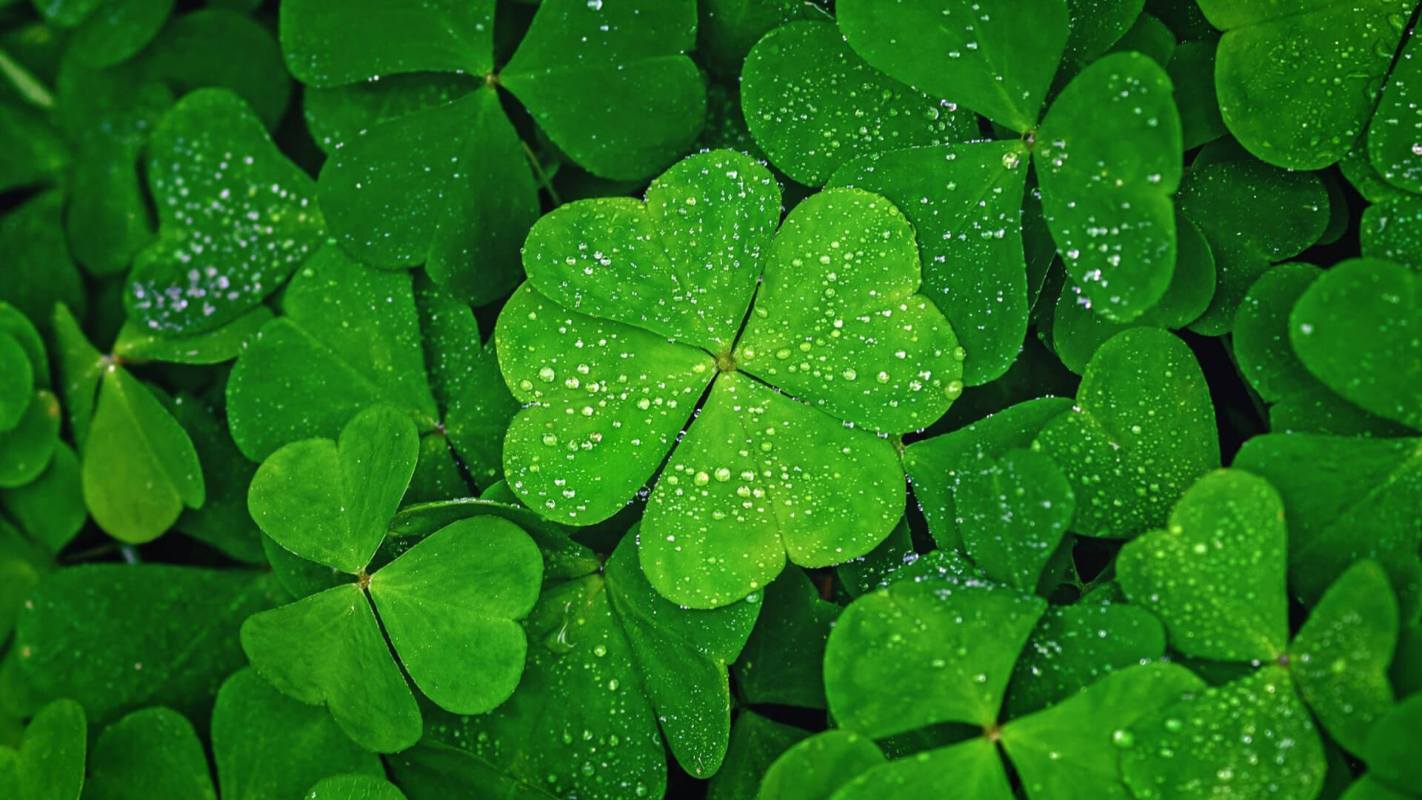What if we told you you could have a lush green lawn that didn't cost you an arm and a leg to maintain? One where you didn't have to waste money on expensive herbicides and fertilizers, gas for your lawn mower, or high water bills.
This isn't some mythological grass, but clovers.
Clovers are an alternative to the traditional turf grass that we see in most yards. A clover lawn can be as simple as clovers coexisting with your traditional grass or as committed as removing all the grass sod and starting from scratch.
Save money and resources
One of the biggest advantages of a clover lawn is the cost savings.
Clover seed is very inexpensive, costing around a dollar to seed 1,000 square feet of land. For those that have fought clovers off high-maintenance turf lawns before, converting to a clover lawn is free — all you need to do is let it grow.
Gone are the days of spending hundreds of dollars to keep your grass an artificial green color and weeds out of your yard. Clover does both of these tasks for free — staying green year-round and crowding out weeds naturally.
Clovers develop a deep root system. This extensive underground structure secures the soil, prevents erosion, and allows the clover to access water and moisture stored within the ground, making it drought-resistant.
A ground cover that can endure droughts means you save money on your monthly water bill while conserving precious water resources.
Minimal watering and fertilizer or herbicide use also reduces the risk for runoff, protecting nearby bodies of water and helping wildlife thrive.
Reclaim your weekends
Money isn't the only thing you'll save with a clover lawn — you can also save on labor. This type of ground covering doesn't grow very tall (no more than eight inches), meaning you won't have to mow as frequently if at all.
With a clover lawn, you can take back the hours you would spend cutting the grass each weekend for more important things, like sleeping in or hanging out with friends or family.
Thrives almost anywhere
The deep root systems of clover that make it drought-resistant also allow this plant to survive on slopes without washing away.
Clovers can survive in infertile soils and revive them, too. As a nitrogen-fixing plant, clovers can take nitrogen from the air and store it in their roots, supplementing the soil with this vital nutrient that allows other plants to grow.
This nitrogen fixation helps fertilize the soil and saves you from spending money on toxic synthetic fertilizers.
Better for the planet
All clover varieties produce small blooms that are adored by pollinators, like bees and butterflies. A yard full of clovers and small flowers provides a food source for bees, in particular, that can help increase this insect's population size.
With a healthy bee population, other wild plants can get pollinated, in turn supporting local wildlife and your local food supply. Clover lawns can even provide a habitat for small mammals, such as rabbits.
If you have young children or a bee allergy, you may consider planting microclover, which produces fewer flowers than other types of clover, or mowing clovers before they bloom, which will prevent the growth of the flowers that draw in bees.
Clover lawn popularity
The tides are turning away from our exhausting traditional lawns towards yards that are low maintenance, less expensive, and benefit nature, like rewilding your yard or letting clovers take over.
There is a massive interest in clover lawns online — the subreddit r/NoLawns has over 200,000 members, and there are over 152 million views on #cloverlawn on TikTok.
@renovatingourhome Grass lawns versus clover and why we love our #cloverlawn 🍀 #clover #ecofriendly #sustainable #lawnalternatives ♬ Summer day - TimTaj
Compared to a traditional grass yard, a clover lawn saves money, resources, time, and energy.
Whether you're doing it for the local wildlife or to have a low-maintenance yard, clover lawns are well worth their hype.
Join our free newsletter for easy tips to save more, waste less, and help yourself while helping the planet.









